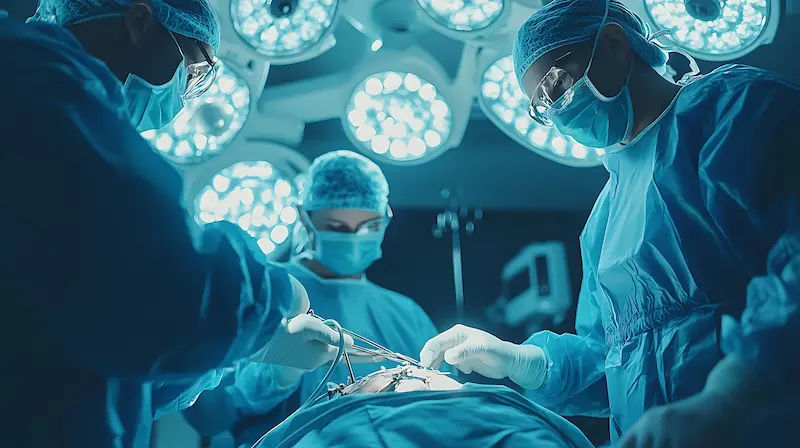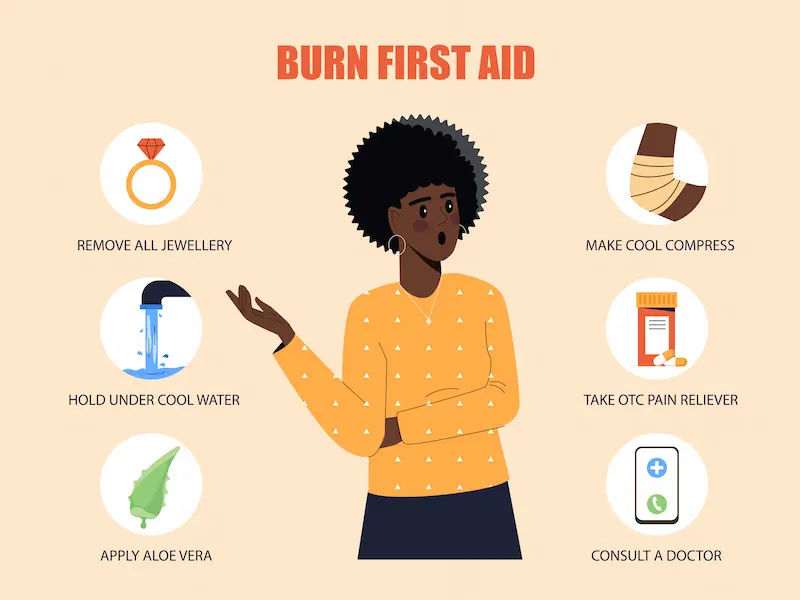Your Guide to Self Help: Best Help During Cancer Treatment
Learn evidence-based self-help techniques to manage stress, boost well-being, and complement your cancer treatment with emotional and physical support.

Written by Dr. J T Hema Pratima
Reviewed by Dr. Shaik Abdul Kalam MD (Physician)
Last updated on 13th Jan, 2026
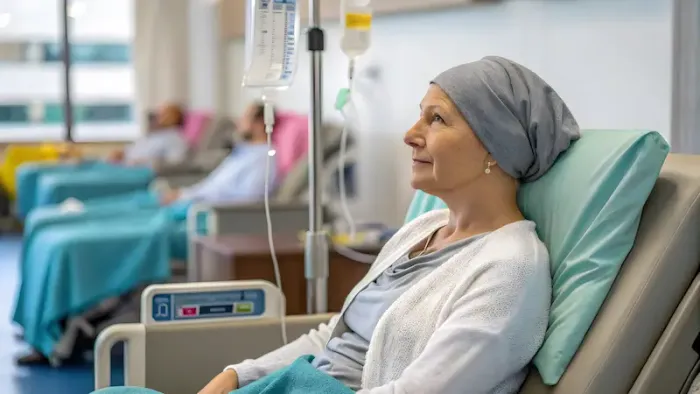
Introduction
A cancer diagnosis and the subsequent treatment journey can feel overwhelming, a path where you may sometimes feel like a passenger rather than the driver. While your medical team provides essential clinical care, the concept of self-help during cancer treatment empowers you to become an active participant in your own healing. This guide is designed to show you that self-help isn't about finding a miracle cure; it's about implementing practical, evidence-based strategies to support your mind, body, and spirit through this challenging time. We will explore how nurturing your emotional health, supporting your physical body, and building a strong support network can significantly improve your quality of life, help you manage side effects, and foster a sense of control. Think of this as your roadmap to finding strength and resilience, complementing the excellent medical help you are receiving from your doctors at Apollo24|7 or your local hospital.
Understanding the Power of Self-Help in Your Cancer Journey
What Self-Help Really Means During Treatment
In the context of cancer, self-help is a proactive approach to well-being that runs parallel to your medical treatments. It’s the collection of actions you take to care for your whole self—emotional, physical, and practical. This is not about rejecting medical science but about enhancing it. Studies in the field of integrative medicine have shown that patients who engage in self-care practices often report better quality of life, reduced perception of pain, and sometimes even improved tolerance for treatments like chemotherapy and radiation. It’s about reclaiming a sense of agency. When so much feels out of your control, deciding what you will eat, when you will rest, or how you will calm your mind becomes a powerful act of self-help.
The Mind-Body Connection: How Your Actions Influence Your Well-being
The link between mental and physical health is profound, especially during illness. Chronic stress and anxiety can weaken the immune system and exacerbate inflammation, potentially intensifying treatment side effects. Conversely, practices that promote relaxation, such as meditation or gentle yoga, can trigger the body’s relaxation response. This can lead to lower blood pressure, reduced heart rate, and decreased levels of stress hormones. Understanding this mind-body connection is the foundation of effective self-help during cancer treatment. By managing your stress, you are not just helping your mental state; you are actively creating a physiological environment that is more conducive to healing and resilience.
Consult a Specialist for the best advice
Nurturing Your Emotional and Mental Health
Acknowledging and Managing Your Feelings
It is perfectly normal to experience a rollercoaster of emotions—fear, anger, sadness, and even moments of hope and gratitude. The first step in emotional support for cancer patients is to allow yourself to feel these emotions without judgment. Suppressing feelings often gives them more power. Talk to a trusted friend, family member, or therapist. If talking is difficult, simply naming the emotion ("I am feeling scared right now") can reduce its intensity. This is a crucial coping strategy during chemotherapy and other treatments, as it prevents emotional energy from being drained by internal conflict.
Mindfulness and Meditation for Inner Calm
Mindfulness exercises for cancer anxiety are powerful tools. Mindfulness is the practice of paying attention to the present moment without judgment. When anxiety about the future or distress about the past arises, mindfulness gently brings you back to the now. Simple practices include focusing on your breath for five minutes, doing a body scan to notice sensations without trying to change them, or mindfully eating a piece of fruit, engaging all your senses. Apps and online guides can provide structured meditation sessions. Research has shown that regular mindfulness practice can significantly reduce symptoms of anxiety and depression in cancer patients.
The Benefits of Journaling Your Experience
Writing down your thoughts and feelings can be a therapeutic release. A journal is a private, safe space to vent fears, track symptoms, document questions for your doctor, and even note moments of gratitude. This practice can help you process complex emotions, identify patterns in your mood or side effects, and gain clarity. You don’t need to be a writer; just a few sentences each day can make a difference. Some people find it helpful to write letters to their cancer or to their body, fostering a new kind of dialogue and acceptance.
Supporting Your Physical Well-being
Nutrition as Nourishment: Eating Well for Strength
Proper diet during radiation therapy and chemotherapy is vital for maintaining strength and supporting your immune system. Focus on whole, nutrient-dense foods. Prioritise lean proteins (fish, chicken, beans) for cell repair, complex carbohydrates (whole grains, vegetables) for energy, and healthy fats (avocado, nuts, olive oil) for inflammation control. Small, frequent meals can be easier to manage than three large ones, especially if you're dealing with nausea. Stay hydrated with water, broths, and herbal teas. It's advisable to consult a nutritionist who specialises in oncology to create a personalised plan. If you have specific dietary concerns, you can consult a dietitian online with Apollo24|7 for tailored advice.
Safe and Gentle Movement: The Role of Exercise
For years, cancer patients were advised to rest excessively. We now know that appropriate physical activity is one of the best ways to manage cancer fatigue. Gentle exercises like walking, swimming, tai chi, or yoga can boost energy levels, improve mood, reduce anxiety, and help maintain muscle mass. Always get clearance from your oncologist before starting any new exercise regimen. The key is to listen to your body—some days you may manage a 15-minute walk, other days just stretching in bed is an accomplishment. The goal is movement, not intensity.
Prioritising Rest and Managing Cancer-Related Fatigue
Cancer-related fatigue is different from everyday tiredness; it’s not relieved by sleep. Managing cancer fatigue at home requires a strategic approach. Practice "pacing"—alternating periods of activity with periods of rest. Schedule important tasks for when you typically have the most energy. Learn to say "no" to conserve your energy for what truly matters. Create a restful environment for sleep: keep your bedroom dark, cool, and quiet, and avoid screens before bed. If fatigue is severely impacting your life, discuss it with your doctor, as it could be related to anemia or other treatable issues. Apollo24|7 offers convenient home collection for tests like haemoglobin to help monitor such conditions.
Building Your Practical Support System
Communicating Effectively with Your Healthcare Team
You are the most important member of your healthcare team. Prepare for appointments by writing down your questions beforehand. Be honest about your symptoms, side effects, and emotional state. Don't downplay your pain or fatigue. Good communication ensures you get the best possible help during cancer treatment. If you feel overwhelmed during appointments, bring a family member or friend to take notes and advocate for you.
Leaning on and Directing Your Loved Ones
People want to help but often don't know how. Be specific. Instead of saying "Let me know if you need anything," which puts the burden on you, they can say, "I'm going to the grocery store on Tuesday, what can I pick up for you?" or "I can take care of school drop-off on Thursday." Create a list of tasks (meals, errands, childcare) so when someone offers, you can point them to something concrete. Allowing others to help strengthens your support network and lets them feel useful.
Finding Your Tribe: The Value of Support Groups
Connecting with others who are on a similar path can be incredibly validating. Support groups, whether in-person or online, provide a space to share experiences, tips, and emotions with people who truly "get it." You can learn practical coping strategies during chemotherapy from those who have been there. This reduces feelings of isolation and provides a unique source of hope and understanding.
When to Seek Additional Help
Recognising Signs of Depression and Anxiety
While sadness and worry are normal, persistent feelings of hopelessness, helplessness, or overwhelming anxiety that interfere with your daily life may indicate a more serious condition like depression or an anxiety disorder. Other signs include a loss of interest in activities you once enjoyed, significant changes in appetite or sleep patterns, or having thoughts of harming yourself.
The Importance of Professional Mental Health Support
There is immense strength in seeking help. A therapist or counsellor who specialises in working with cancer patients can provide you with evidence-based tools (like cognitive behavioural therapy) to manage difficult thoughts and emotions. If your emotional state feels unmanageable, consulting a therapist online with Apollo24|7 can be a convenient and effective first step. Professional support is a crucial component of comprehensive cancer care.
Conclusion
The journey through cancer treatment is uniquely challenging, but it is a path you do not have to walk passively. This guide to self-help during cancer treatment has outlined how you can be your own best help by tending to your emotional, physical, and practical needs. From mindfulness and nutrition to building a strong support system, each small action you take is a step toward reclaiming your sense of control and well-being. Remember, self-help is about addition, not subtraction—it’s about adding layers of support to the excellent medical care you are receiving. Be patient and compassionate with yourself, celebrate small victories, and know that seeking help, whether from friends, support groups, or professionals, is a sign of profound strength. You have more resilience within you than you know.
Consult a Specialist for the best advice
Consult a Specialist for the best advice

Dr.sanchayan Mandal
Medical Oncologist
17 Years • MBBS, DrNB( MEDICAL ONCOLOGY), DNB (RADIOTHERAPY),ECMO. PDCR. ASCO
Kolkata
Dr. Sanchayan Mandal Oncology Clinic, Kolkata

Dr Gowshikk Rajkumar
Oncologist
10 Years • MBBS, DMRT, DNB in Radiation oncology
Bengaluru
Apollo Clinic, JP nagar, Bengaluru

Dr. Sanchayan Mandal
Medical Oncologist
17 Years • MBBS, DrNB( MEDICAL ONCOLOGY), DNB (RADIOTHERAPY),ECMO. PDCR. ASCO
Kolkata
MCR SUPER SPECIALITY POLY CLINIC & PATHOLOGY, Kolkata
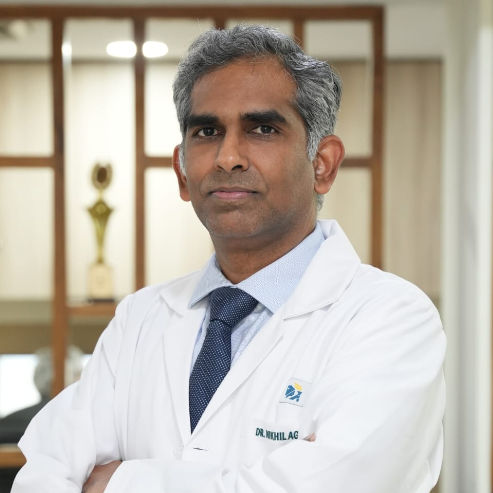
Dr. Nikhil Agrawal
Surgical Oncologist
18 Years • MBBS, MS, MCh (AIIMS, New Delhi)
Delhi
Apollo Hospitals Indraprastha, Delhi
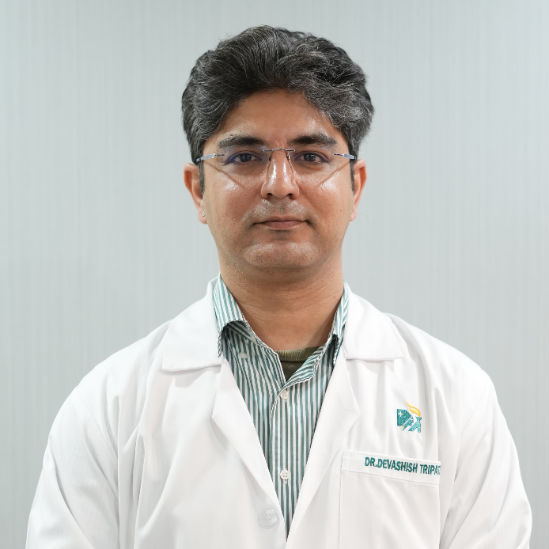
Dr Devashish Tripathi
Radiation Specialist Oncologist
20 Years • MBBS, PLAB, MRCP (UK)- General Medicine, FRCR (Oncology), Certificate of Completion of Training (CCT)- Clinical Oncology
Delhi
Apollo Hospitals Indraprastha, Delhi
Consult a Specialist for the best advice

Dr.sanchayan Mandal
Medical Oncologist
17 Years • MBBS, DrNB( MEDICAL ONCOLOGY), DNB (RADIOTHERAPY),ECMO. PDCR. ASCO
Kolkata
Dr. Sanchayan Mandal Oncology Clinic, Kolkata

Dr Gowshikk Rajkumar
Oncologist
10 Years • MBBS, DMRT, DNB in Radiation oncology
Bengaluru
Apollo Clinic, JP nagar, Bengaluru

Dr. Sanchayan Mandal
Medical Oncologist
17 Years • MBBS, DrNB( MEDICAL ONCOLOGY), DNB (RADIOTHERAPY),ECMO. PDCR. ASCO
Kolkata
MCR SUPER SPECIALITY POLY CLINIC & PATHOLOGY, Kolkata

Dr. Nikhil Agrawal
Surgical Oncologist
18 Years • MBBS, MS, MCh (AIIMS, New Delhi)
Delhi
Apollo Hospitals Indraprastha, Delhi

Dr Devashish Tripathi
Radiation Specialist Oncologist
20 Years • MBBS, PLAB, MRCP (UK)- General Medicine, FRCR (Oncology), Certificate of Completion of Training (CCT)- Clinical Oncology
Delhi
Apollo Hospitals Indraprastha, Delhi
More articles from General Medical Consultation
Frequently Asked Questions
1. What are the easiest self-help practices to start with?
Start small to avoid feeling overwhelmed. Two highly effective and simple practices are:
• Mindful Breathing: Spend just 2-3 minutes, three times a day, focusing solely on your inhalation and exhalation.
• Gentle Walking: A 10-minute slow walk outdoors can boost both energy and mood.
2. How can I help a loved one going through cancer treatment?
The best approach is to offer specific, practical help. Instead of 'Call me if you need anything,' try: 'I'm making a lasagna on Wednesday, would you like me to bring one over?' or 'I'm free to drive you to your appointment on Thursday.' This removes the burden of asking from the patient.
3. Is it normal to feel guilty for focusing on self-help?
Yes, it's a common feeling, but it's important to reframe it. Self-help is not selfish; it's essential. By taking care of yourself, you are preserving your strength, which allows you to better engage with your treatment and your loved ones. You cannot pour from an empty cup.
4. Can self-help practices interfere with my medical treatment?
Most practices like healthy eating, gentle exercise, and meditation are complementary and supported by oncology teams. However, always discuss any significant dietary changes, new supplements, or intense exercise routines with your oncologist to ensure they are safe for your specific situation.
5. Where can I find reliable online support groups?
Many reputable organisations host online communities. Look for groups affiliated with major cancer centers or national organisations like the Indian Cancer Society (ICS), the Cancer Patients Aid Association (CPAA), and CanSupport. These platforms are moderated to ensure a safe and supportive environment.
